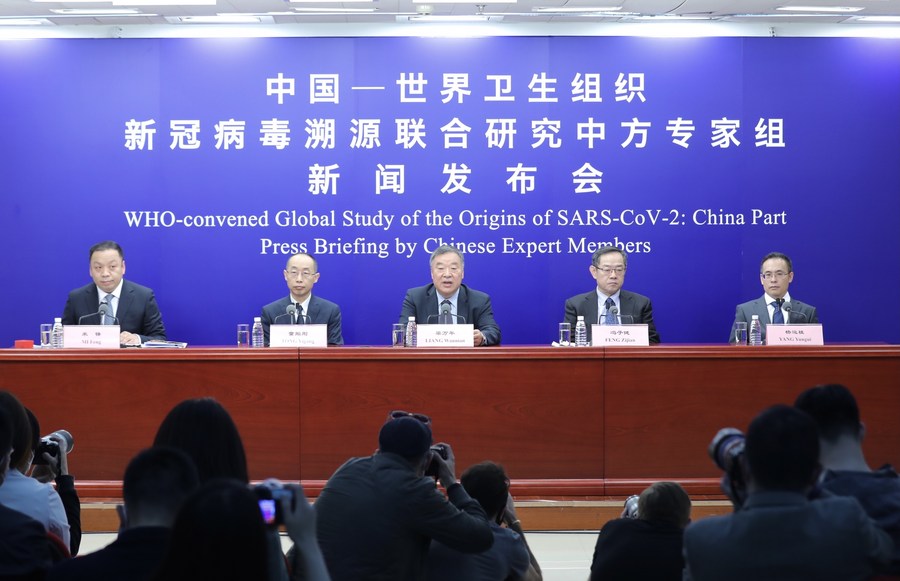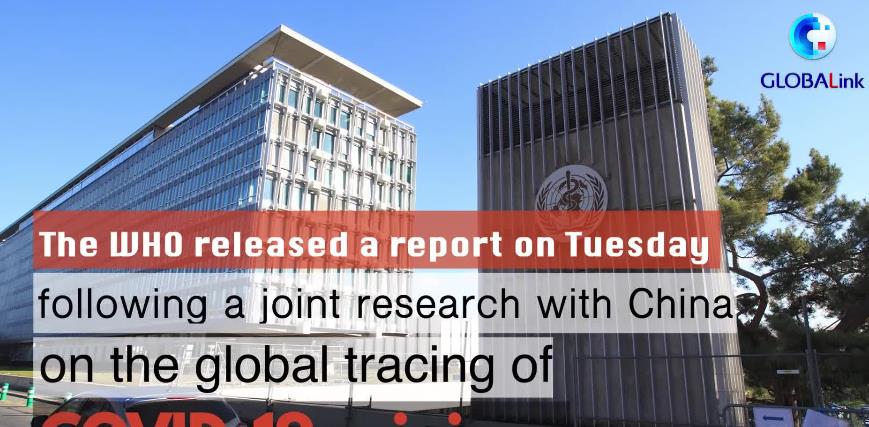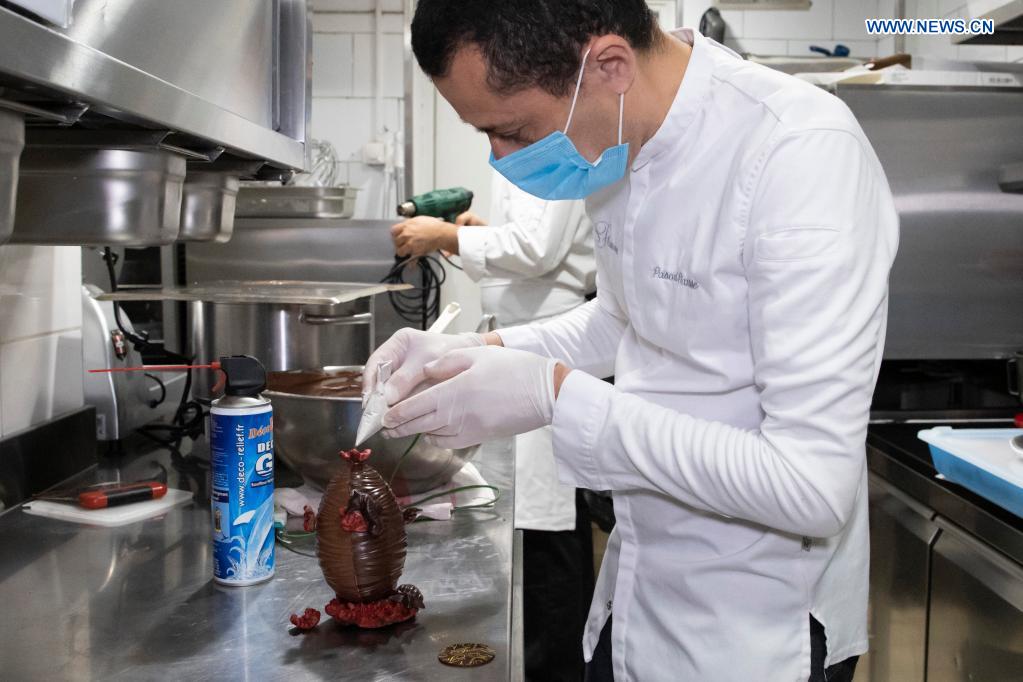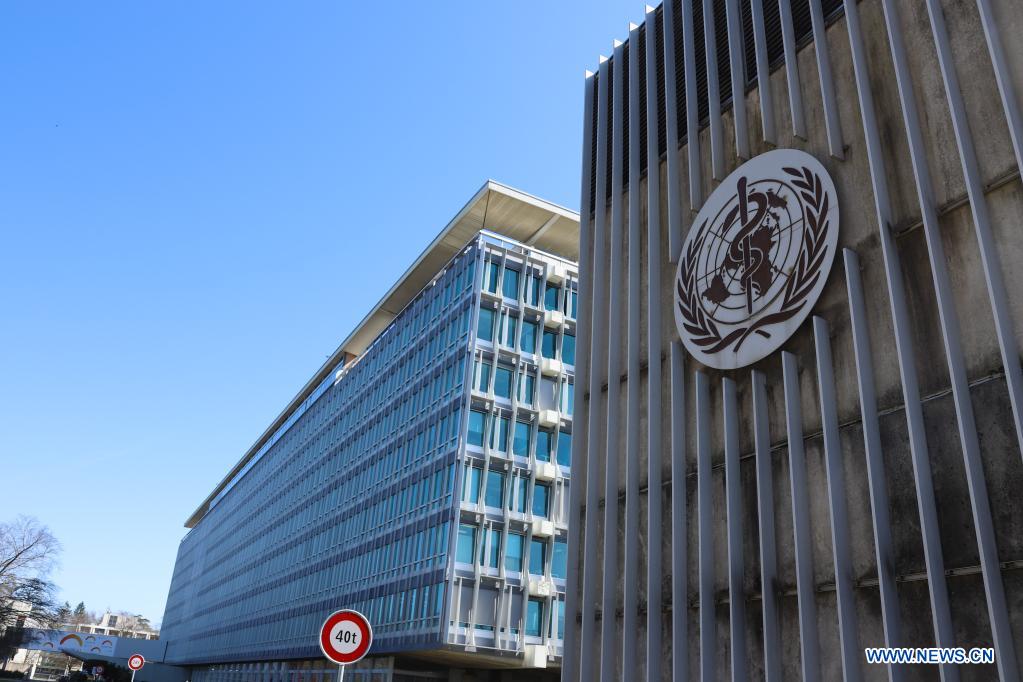
Chinese expert members of a WHO-China joint team introduce the report on the WHO-convened global study of COVID-19 origins at a press briefing in Beijing, capital of China, March 31, 2021. (Xinhua/Zhang Yuwei)
BEIJING, March 31 -- The WHO-convened global study of the origins of COVID-19 found that introduction through a laboratory incident is "extremely unlikely," according to Chinese experts participating in the study.
Experts from the WHO and China jointly conducted the research in China and made an assessment of the likelihood of possible pathways, said Liang Wannian, team leader of the Chinese side of the WHO-China joint team studying the COVID-19 origins, at a press briefing on Wednesday.
According to a report on the China Part of the study, COVID-19 introduction through an intermediate host is "likely to very likely," introduction through cold/food chain products is "possible," and introduction through a laboratory incident is "extremely unlikely," Liang noted.
The coronaviruses most highly related to SARS-CoV-2 are found in bats and pangolins, however, neither of the viruses identified so far from these mammalian species is sufficiently similar to SARS-CoV-2 to serve as its direct progenitor, Liang said.
In addition to these findings, minks and cats are found highly susceptible to the COVID-19 virus.
REPORT STANDS TEST OF HISTORY
The report is based on existing data and evidence and can stand the test of history, Liang said.
China is the first country to conduct a joint study on the origins of COVID-19 with the WHO.
Liang said the history of infectious diseases tells us that it generally takes a long time to identify the origin of a new infectious disease and have the findings accepted worldwide, noting that the place a virus is first reported is not necessarily the originating point of the virus.
He added that further tracing of COVID-19 origins will be carried out around the globe, based on the findings of the study in China.
Liang pointed out that the assumption that China did not provide original data for the study of the origins of the novel coronavirus does not hold water.
Chinese and foreign experts have been carrying out continuous research and analysis together in Wuhan, and there is no difference between the information possessed by Chinese experts and foreign experts, he said.
Chinese and foreign experts have been working quite closely during their research, he stressed. "According to Chinese law, some data cannot be taken away or photographed."
PROPOSALS FOR FUTURE RESEARCH
The Chinese experts participating in the study have suggested efforts to expand a global database for COVID-19 and the scope of the search for early cases worldwide.
Liang said that after serious discussions with their WHO peers, the experts recommended expanding a unified global database that includes molecular, genome sequence, clinical, epidemiological, zoonotic and environment monitoring information and findings regarding the disease.
The experts also called for continuous efforts to search for potential early cases of the disease in a wider range of locations around the world.
They suggested scientists worldwide conduct more diversified research in different countries and regions on animal virus hosts, and enhance their study of the role of cold chains and relevant products in the transmission of the virus.













